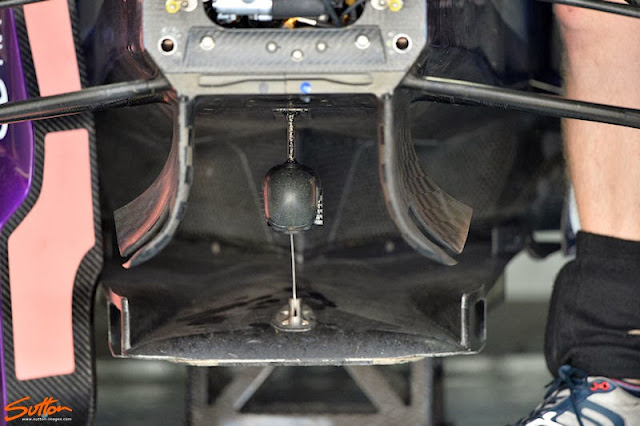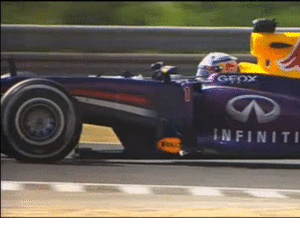I brought them [Williams] into the equation because you made the point
"If it was all down to the PU, there would be more Williams and Force India victories, as yet we have none." An often heard argument. Essentially arguing that since none of those teams [with the almighty Mercedes PU] scored a win, it
impossibly could be due to the PU. So again, yes, I fully agree that the PU is not the
only relevant component - chassis and aero is important too -
but the PU is still the most dominant component at the moment (or was in 2014).
BTW; Just to make the point clear(er), in regards to the other posts I made in two recent topics... that same data I gathered from the past 5 seasons, also shows that going from 2013 into 2014, every Mercedes engined team either kept its previous year standing or improved (in the case of Williams, substantially). Every Renault and Ferrari engined team practically went backwards or barely held on to its position of the previous year. That in itself underlines what a massive impact the engine has currently. I'd argue that RedBull barely hung on to 2nd last year precisely because they still have a very very good chassis and aero, even if they are compromising it to limit the shortcoming of the PU.
As for the link to AM&S / Horner thinking they are 3 tenths behind; It's hard to gauge in what context they mean that. Is that
before or
after they've compromised their setups to not be too vulnerable on the straights?
Foxhound wrote:Edited wall of text...But you really think Red Bull would quit F1 over breaking a contract with Renault?
What's to say Renault don't want out of the RB frying pan?
Engine proposals were made up precisely to put more emphasis on engines as a differentiator. So why would Red Bull not want to be in control of this facet? As I said, they knew what was coming.
I don't think anything [in regards to them breaking any contract]. I'm just going to assume that breaking an engine contract is something quite serious and involves lots of money and if you do, you'd better have a second engine in the loop. Realistically, building your own engine is a
massive undertaking - and it gets more complex if you add the whole ERS aspect. And most manufacturers who are currently inside F1 and actually doing that, have customer teams to help them invest into that area and spread the costs. Honda is the big exception, but how their future involvement will unfold is anyones guess - perhaps they hope that this one partnership with McLaren will be hugely successful and allow them to run closest to what is could be a works-team equivalent (without the full bang commitment that had them leave the sport in 2008) or they might power multiple teams in the future depending on who enters and who ends up with who.
Think about it. RedBull might have massive spending power, but the gains need to be there. Getting into engine business is too much to ask for and even if they use their money to get another manufacturer into F1, it isn't easy, as said manufacturer wants to limit their risk too. And if we rewind back to 2013 - they had a very successful past seasons with Renault. How were they to know the engine would be that far behind? I think some of the issues that came about were not that obvious. Sure, packaging. But it was perhaps a learning process for both, especially now that everyone has seen what Mercedes could do, and what Ferrari is doing now. The question is; can they still change that? And again - who knew that these engines would be such huge performance differentiators, despite the fuel flow limit? The V6T was always going to be a new game for everyone... lots of unknowns. That's what made speculating so exciting back in 2013.
Also, didn't Mercedes just turn down RedBull to supply it with engines? If their chassis is so good and ahead of the field, why not supply RedBull? I think I know the answer to that question...
Foxhound wrote:Bye bye Mercedes, No Honda, Ferrari too would question their involvement if they couldn't use one of the 3 pillars of F1....engines to overcome the deficits they had to the non RRA bound Red Bull.
What's the point?
A frozen engine formula was ---. No developments, at least today we have some form of development. Besides, why should chassis and aero hold sway over engines? Surely they should all have an equal part to play.
Is the current balance correct, no. But it sure as hell doesn't need another frozen formula, it needs a slight opening of the rules if anything.
No one wanted an engine formula. Well, except perhaps the two works-teams, because they knew they could turn the whole field upside down. But an engine formula costs money. And the FIA was smart enough to limit the rate of development and putting restrictors (like the fuel flow limit) so that you don't end up with one team being 10 seconds a lap quicker. For a sport to work, you need most of your competitors to be within the same ballpark. Can't have half the field running around the track like backmarkers. So regulations are made to keep things in check.
An engine formula makes sense, if we have more works-teams. Essentially different car/engine manufacturers competing. Then, instead of having a 500+ strong race team focused on aerodynamic gains, you may cut back on them and require more engineers to build stronger and better engines. It all depends on the regulations you put forward, what kind of formula you are shaping. Right now, most teams have know-how focused on building chassis and aero. The only exceptions are perhaps Mercedes and Ferrari that can combine both their engine and aero/chassis teams. All the customer teams, get what they get and make due - e.g. build the car around the engine, where as the works-teams perhaps have an engine that is built around the car in a more balanced act.
Is one better than the other? I'm all for an 'engine formula' - a formula wherein engine development is key and the biggest performance differentiator - but then we need more engine manufacturers. I don't want 2 works-team fighting for championships and 8 customer teams who can't because they are a step behind or because the engine manufacturer that is supplying them made a grave error and can't progress due to a token system in place limiting that development. Isn't that a farce? I understand why it's there (the tokens), but at the same time, you have certain teams struggling.
Compare this to perhaps a single engine (one for all) by an outsider and you have 10 teams specialized in building chassis/aero and everyone has an equal chance to influence how far up the order they finish. We more or less had this, when we had 3 frozen engines that offered more or less the same performance, so the focus was on aero/chassis and exploiting those rules to the fullest...
We need the gap between engines to narrow. If they don't and the rate of development [in that area] is limited, how are certain teams ever going to compete? And I could care less about just the struggling big teams like RedBull. I am thinking about Sauber here too [among others].







